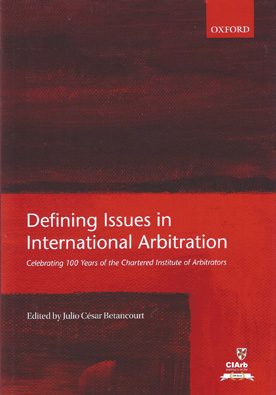
Defining Issues in International Arbitration: Celebrating 100 Years of the Chartered Institute of Arbitrators brings together world-renowned international arbitration specialists - both practitioners and academics - who have never before appeared in the same volume.
This book contains an invaluable collection of essays that provide expert guidance on some of the most recent developments and current issues in this burgeoning discipline, ranging from Professor William Park's hands-on explanation of international arbitration law to Professor Martin Hunter's recollections of past events and reflections on future trends. In between are essays by some of the most distinguished international arbitration practitioners and world-renowned academics that provide guidance on a broad spectrum of defining issues in the field.
The volume is intended to commemorate the 100th anniversary of the Chartered Institute of Arbitrators - the first learned society in the world devoted to the teaching of arbitration.